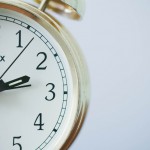 Economics is the science on scarce resources. And what is more scarce than time in modern societies? A recent literature acknowledges this scarcity of disposable time of individuals and households and analyzes the interplay between time allocation and economic decisions and outcomes.
Economics is the science on scarce resources. And what is more scarce than time in modern societies? A recent literature acknowledges this scarcity of disposable time of individuals and households and analyzes the interplay between time allocation and economic decisions and outcomes.
In a new IZA Discussion Paper, José Alberto Molina and J. Ignacio Gimenez-Nadal look at a new aspect of time use: They provide international evidence on how individual satisfaction with one’s health status affects the allocation of time to different daily activities. The researchers analyze daily diaries from six countries in which individuals report how they use their time.
Without claiming a causal interpretation, the authors find that a better health perception is associated with more time spent on paid work and less time devoted to sleep, body care and leisure. But unlike healthier Americans, who also spend more time on home production, Europeans do less housework when they feel healthier. In addition, the study reveals differences in how Europeans tend to allocate their time. For example, Germans invest less time in sleeping or leisure activities compared to other Europeans, but spend more on personal care.